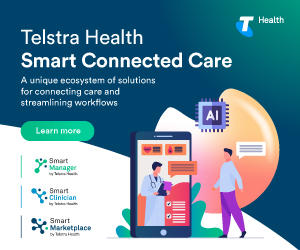Spotlight on World Health Day – What does health mean in 2019?
World Health Day is the 7th of April. To raise awareness, MedicalDirector’s Chief Clinical Advisor and GP, Dr Charlotte Middleton, discusses the meaning of ‘health’ in 2019.
In particular, she highlights how preventive care, and personal choices that modify lifestyle change, can significantly decrease health risks, and form an essential part of the modern approach to better healthcare.
The definition of health and our daily habits
In 1986, The World Health Organisation stated that health is a state of complete physical, mental and social well-being. It is the behaviour of everyday life that is projective of daily living as a positive concept, emphasising personal and social resources as well as physical capacities. It’s not just an absence of disease, but a state of overall well-being.
If we want to define health in 2019, we need to focus on having a healthy interaction with our surrounding world and adapt to the challenges of our ever-changing environment. Although innovations in science and healthcare can help treat the ‘pain’, optimise healing and enhance health outcomes, ultimately, we cannot be healthy when our daily mental and physical habits are not.
This means it is critically important that we acknowledge the impact our lifestyle has on our health. The most chronic sicknesses we see today, such as metabolic syndromes and chronic diseases, are driven by how we are living. For example, the rise of diabetes, obesity, heart disease and dementia, are all examples of chronic lifestyle diseases that we could be preventing and in many cases curing, by changes to our daily habits.
For example, you may have a genetic predisposition to certain illnesses or even cancer, but how you live your life and the environment in which you live in, how you eat, how you sleep and manage stress can determine whether those genes switch on or off. So it’s essential that we understand the influence of lifestyle as a whole.
Simple changes, like improving our sleep habits, can have a significant impact on physical and mental wellbeing. There’s a growing body of global research that links poor sleep to physical problems, such as a weakened immune system and mental health problems such as anxiety and depression.
Multi-dimensional definition to include mental and social health
Mental health has been put on a back burner or has been given less ‘weight’ in terms of the overarching definition of health for far too long. And we shouldn’t underestimate the impact of mental health on a person’s ability to function through everyday tasks.
The World Health Organisation explains that poor mental health impedes an individual’s capacity to realise their full potential, work productivity, and make a contribution to their community. Disorders such as depression, anxiety, panic attacks and bipolar to name a few, can interfere in the development stage of children to learn and as adults, affect the ability to function in families, work, and in society at large.
Social health, loneliness and our well being.
‘Health’ includes not just physical and mental but also includes our social well-being. As our society becomes more digitally enabled and so many of our social ‘networks’ are now online, social loneliness and isolation is increasingly surfacing as an issue that impacts our mental health and well being.
And the evidence is alarming. Feeling lonely can pose a bigger risk for premature death than smoking or obesity, according to research by Julianne Holt-Lunstad, Professor of Psychology and Neuroscience at Brigham Young University in Utah, USA.
Links to depression may not be surprising, but the idea that loneliness could be associated with poorer cardiovascular health and, in old age, a faster rate of cognitive decline and dementia is quickly repositioning loneliness as a public health issue.
In the UK, the impact loneliness has on morbidity and mental health is so pressing, the UK Government, appointed a “Minister for Loneliness.” And in the Somerset town of Frome in the UK, implementing a program of support for isolated people who have health problems, with community groups and volunteers, resulted in a reduction of hospital admission rates in the town by 17%.
Isolation, loneliness and social health issues will only grow as our lives continue to move into the digitised, virtual world. In fact, in a 2016 Lifeline survey, over 80% of 3,100 respondents surveyed said that the feeling of loneliness was increasing in Australia. It’s why healthcare providers, individuals, the Government and the wider community should address social health as a priority moving forward.
The role of primary care
Making changes to our daily habits, our lifestyle and social choices sounds simple enough, but it is easier said than done. And more often than not people will not be able to do it on their own.
That’s why as medical specialists, we need to take the time to inform and educate our patients, encourage them to make the right choices and guide them towards practices that enable better preventive care. It could be as simple as sharing a factsheet, or explaining the potential benefits of a sleep monitoring app or wellness wearables.
Referring patients to a wider network of health professionals can also help guide them in the right direction. These could include health coaches, nutritionists, dieticians, diabetes educators or exercise coaches.
Ultimately, to empower the community to make changes that promote positive wellbeing, and enable ideal healthcare, people need guidance, information and motivation. That’s why we need to be proactive, as practitioners, to use the right resources, tools and systems, to help give our patients the right personalised care, and guide them towards a better future for their health.









